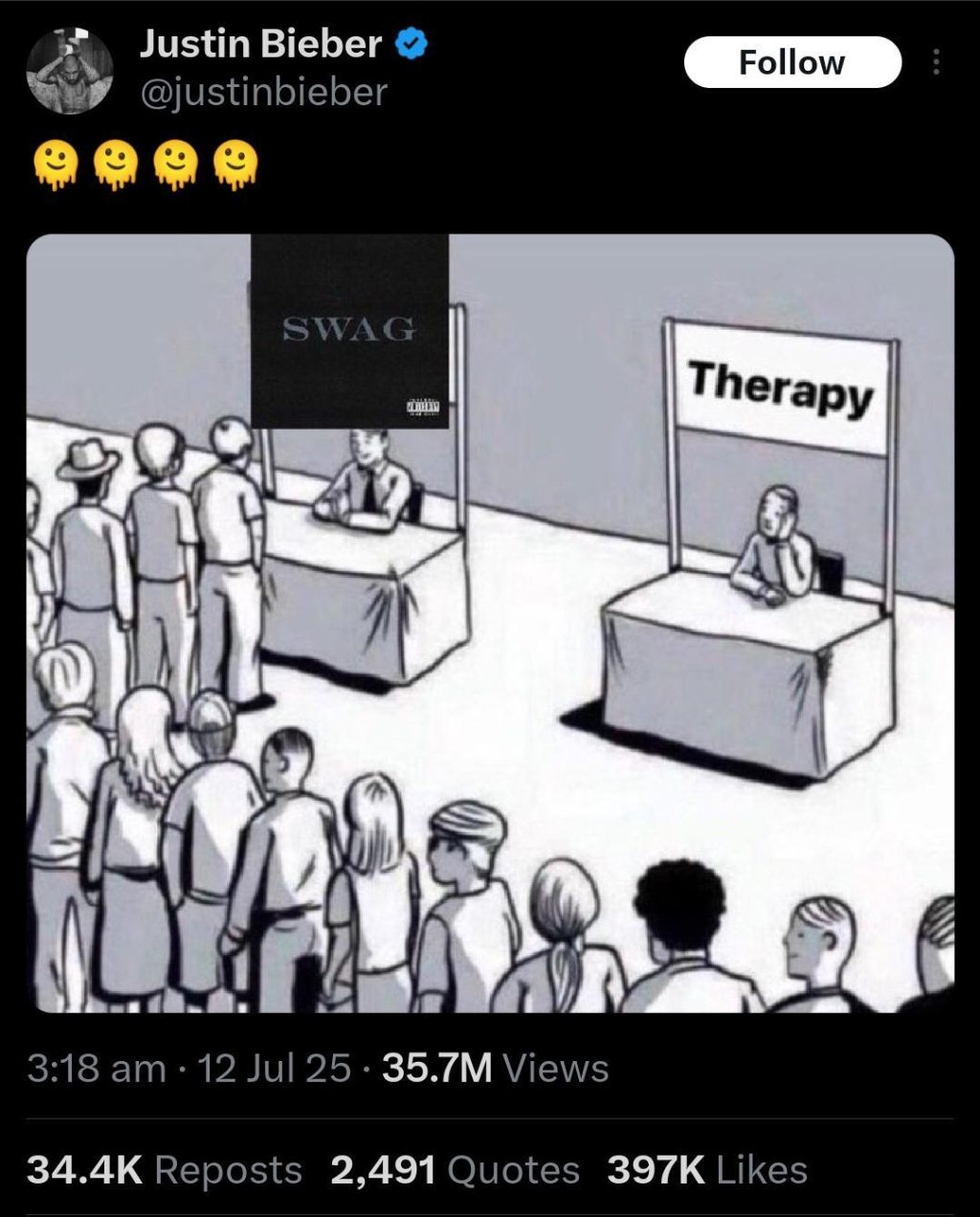
Justin Bieber’s Swag Album Sparks Mental Health Dialogue
In a bold move, pop sensation Justin Bieber has dropped his latest album, Swag, which is not only making waves in the music industry but also sparking important conversations about mental health. The album’s tracklist features a standout song called “Therapy Session,” which has become a viral sensation among fans and critics alike. This unexpected blend of pop culture and advocacy has resonated with Gen Z, who are increasingly looking for ways to cope with the pressures of modern life.
But what makes Swag more than just another album is its thoughtful approach to mental health. Bieber’s music has always been a reflection of his personal struggles, and this album is no exception. By incorporating themes of anxiety, depression, and self-care, Bieber is using his platform to normalize the conversation around mental health.
The album’s title track, “Swag,” is an upbeat anthem that celebrates self-confidence and individuality. However, it’s the album’s more introspective tracks, such as “Therapy Session,” that reveal Bieber’s vulnerability and willingness to confront his own emotional struggles.
“Therapy Session” is a hauntingly beautiful ballad that explores the complexities of mental health. The song’s lyrics are raw and honest, with Bieber sharing his own experiences with anxiety and depression. The song’s chorus, which repeats the phrase “I’m in a therapy session,” is a powerful declaration of his commitment to prioritizing his mental well-being.
The impact of Swag goes beyond just being a pop album. It’s a cultural phenomenon that has sparked a much-needed conversation about mental health. In an era where social media often presents a curated version of reality, Bieber’s album is a refreshing reminder that even the most successful and seemingly perfect individuals can struggle with their mental health.
The power of music as a coping tool for mental health is well-documented. Research published in the Psychology of Music journal has found that music can have a profound impact on mental well-being, reducing stress and anxiety while improving mood and overall mental health.
Dr. Rachel Rodgers, a music therapist and expert in the field of mental health, believes that Bieber’s album is a significant step forward in destigmatizing emotional struggles. “Justin Bieber’s album is a testament to the power of music as a coping tool for mental health,” she said. “By sharing his own experiences and struggles, he’s encouraging his fans to do the same. This can help to break down the stigma surrounding mental health and encourage people to seek help when they need it.”
The impact of Swag extends beyond just the music itself. The album’s release has sparked a viral meme culture, with fans creating humorous and relatable memes that capture the essence of the album’s themes. These memes, which often feature Bieber’s lyrics and hashtags like #MentalHealthMatters, have become a symbol of the album’s power to bring people together and spark important conversations.
Of course, not everyone is a fan of Bieber’s album. Some critics have argued that the album’s themes are too focused on individual struggles, rather than addressing broader systemic issues like mental health access and funding. Others have criticized the album’s production, calling it overly commercial and lacking in depth.
Despite these criticisms, Swag has undoubtedly made a significant impact on the music industry and beyond. It’s an album that has sparked important conversations about mental health, normalized the conversation around emotional struggles, and provided a platform for fans to share their own stories and experiences.
As the music industry continues to evolve, it’s clear that Swag is more than just an album – it’s a cultural phenomenon that will have lasting impact. By using his platform to advocate for mental health awareness, Bieber is paving the way for other artists to do the same.
In conclusion, Justin Bieber’s Swag album is a powerful step forward in the conversation around mental health. By incorporating themes of anxiety, depression, and self-care, Bieber is using his platform to normalize the conversation around emotional struggles and provide a platform for fans to share their own stories and experiences. As the music industry continues to evolve, it’s clear that Swag is more than just an album – it’s a cultural phenomenon that will have lasting impact.



